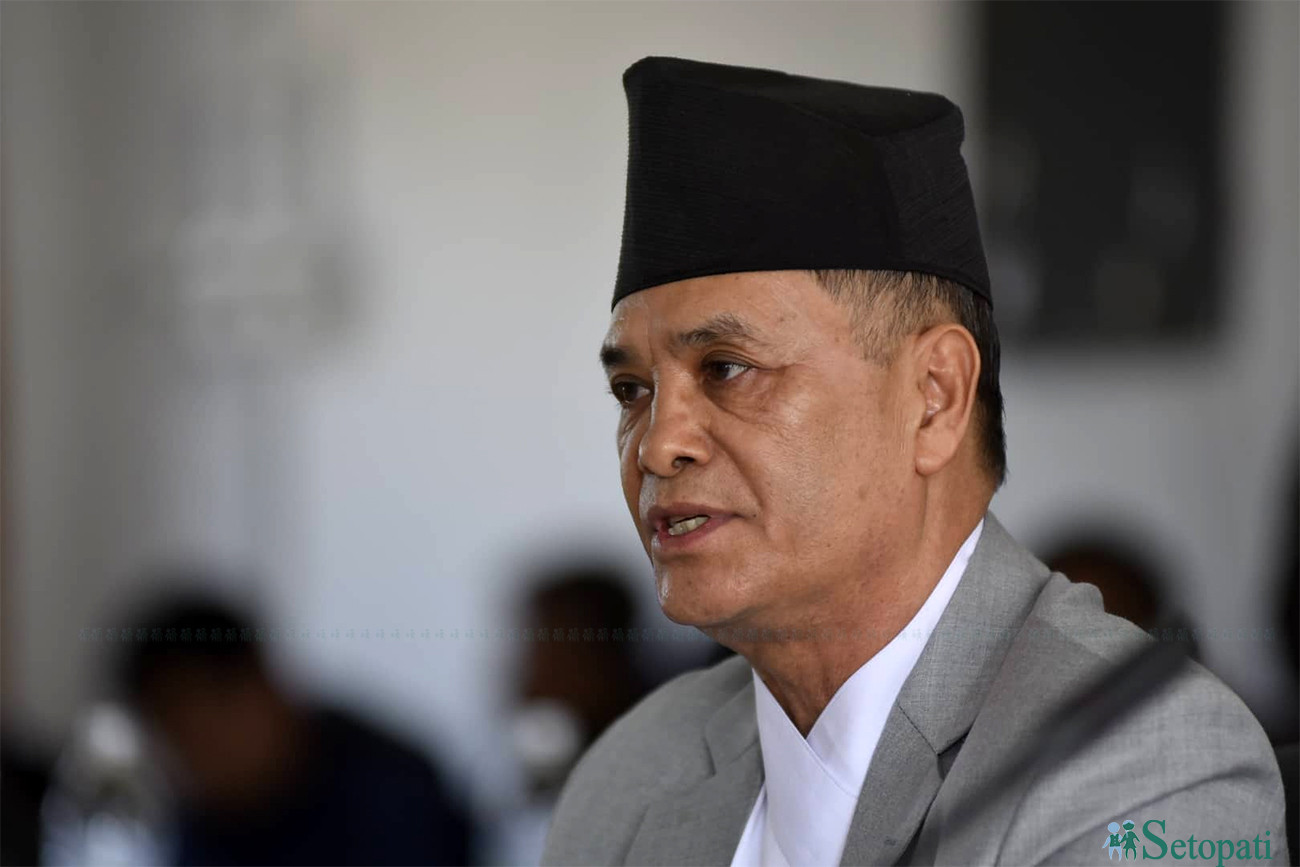Chief Justice (CJ) Cholendra Shumsher Rana asked Joint Attorney General Sanjeev Raj Regmi whether there is example of the prime minister (PM) dissolving the House in any other country despite no constitutional provision for that.
CJ Rana asked the question when Regmi was defending the House dissolution by PM KP Sharma Oli during the hearing on Friday pointing it can be dissolved when there is no alternative to form another government.
The five-strong constitutional bench led by CJ Rana has repeatedly asked other lawyers defending the dissolution if it is the House or the PM that can decide whether another government can be formed or not, and has not got a convincing answer.
Regmi used the precedent set by the SC while giving a verdict on the dissolution by Man Mohan Adhikari in 1995 to back that argument. "He was leading a minority government then. The SC therefore asked him to look if there is a possibility of other parties forming the government," Regmi stressed.
"On the other hand, he had dissolved the House when a no-confidence motion had already been registered and the House session was also called. The SC, therefore, asked him to face the House. But the situation is not so now. There is no chance of forming an alternative government and a no-confidence motion has also not been brought. The current dissolution, therefore, is right."
He pointed that the verdict also mentioned that House dissolution is valid if there is political reason. "That verdict has accepted that as a principle."
CJ Rana then stopped Regmi and pointed, "There was a ladder yesterday (Article 53(4) of the Constitution of 1990) that had granted privilege to the PM to dissolve the House. It is now said that the ladder has been taken away."
Regmi answered that it is for the bench to decide whether it can be dissolved or not. He added that PM Oli has given many political reasons to justify the dissolution and claimed that the court cannot enter into justification of political reasons.
CJ Rana then pointed that the major bone of contention between the two sides seem to be that the petitioners claim that only the things that are written in the Constitution of 2015 can be allowed while those defending the dissolution argue that it should be allowed on the basis of values and norms of parliamentary system that the Constitution has adopted through Article 74.
He asked Regmi whether there is any example of the House being dissolved in any country with a similar Constitution not granting the PM the rights to dissolve the House. "We have not looked for that and haven't found either. How it should be written in the Constitution is a different issue. But Article 76(7) of the current the Constitution also grants the rights to dissolve. The current dissolution is valid and the petitions should, therefore, be dissolved," Regmi answered.
Joint Attorney Generals Lok Raj Parajuli and Khem Raj Gyawali also argued to defend the dissolution Friday after Regmi. Parajuli claimed that the petitioners did not come to the court with a good intention while Gyawali explained about the rights of the president.

